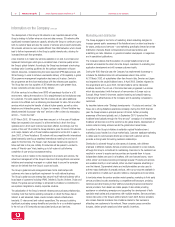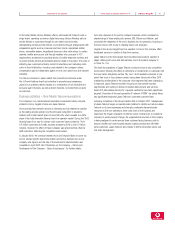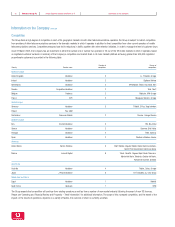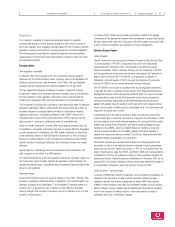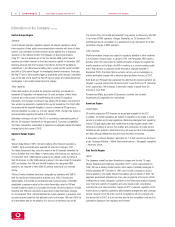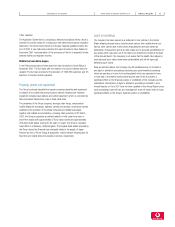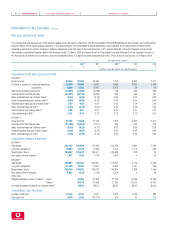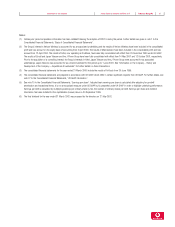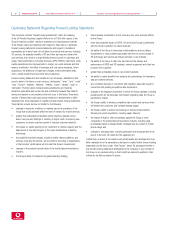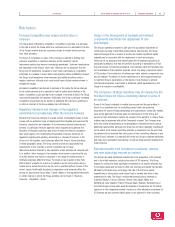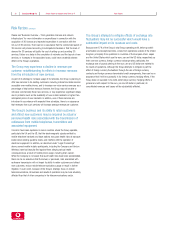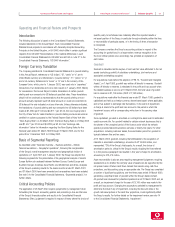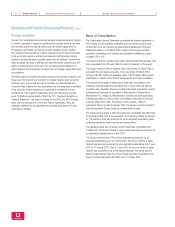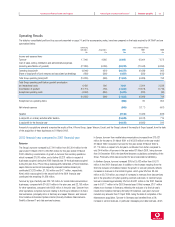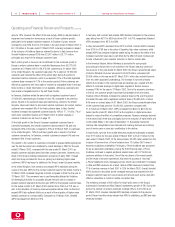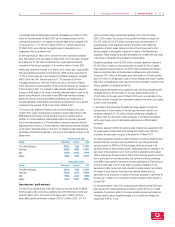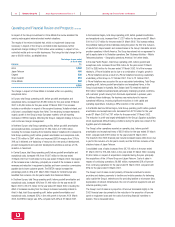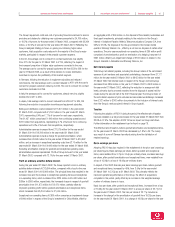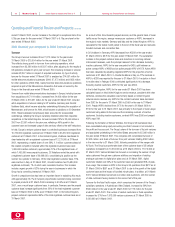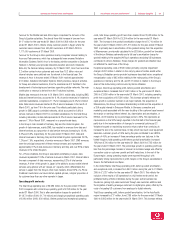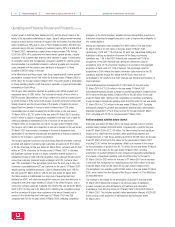Vodafone 2002 Annual Report Download - page 32
Download and view the complete annual report
Please find page 32 of the 2002 Vodafone annual report below. You can navigate through the pages in the report by either clicking on the pages listed below, or by using the keyword search tool below to find specific information within the annual report.
Vodafone Group Plc Annual Report & Accounts and Form 20-F Risk Factors30
Please see “Business Overview – Third generation licences and network
infrastructure”for more information on expenditures in connection with the
acquisition of 3G licences and expected expenditure in connection with the
roll-out of 3G services. There can be no assurance that the commercial launch of
3G services will proceed according to anticipated schedules or that the level of
demand for 3G services will justify the cost of setting up and providing 3G
services. Failure or a delay in the completion of networks and the launch of new
services, or increases in the associated costs, could have a material adverse
effect on the Group’s operations.
The Group may experience a decline in revenues per
customer notwithstanding its efforts to increase revenues
from the introduction of new services.
As part of its strategy to increase usage of its networks, the Group is planning to
offer new services to its existing customers, including internet and data services
accessible over mobile phones, and to increase non-voice service revenues as a
percentage of total service revenue. However, the Group may not be able to
introduce commercially these new services, or may experience significant delays
due to problems such as the availability of new mobile handsets or higher than
anticipated prices of new handsets. In addition, even if these services are
introduced in accordance with expected time schedules, there is no assurance
that revenues from such services will increase average revenue per customer.
The Group’s business and its ability to retain customers
and attract new customers may be impaired by actual or
perceived health risks associated with the transmission of
radiowaves from mobile telephones, transmitters and
associated equipment.
Concerns have been expressed in some countries where the Group operates,
particularly the UK and the US, that the electromagnetic signals emitted by
mobile telephone handsets and base stations may pose health risks at exposure
levels below existing guideline levels, and interfere with the operation of
electronic equipment. In addition, as described under “Legal Proceedings”
above, several mobile industry participants, including the Company and Verizon
Wireless, have had lawsuits filed against them alleging various health
consequences as a result of mobile phone usage, including brain cancer.
While the Company is not aware that such health risks have been substantiated,
there can be no assurance that the actual, or perceived, risks associated with
radiowave transmission will not impair its ability to retain customers and attract
new customers, reduce mobile telecommunications usage or result in further
litigation. In such event, because of the Group’s strategic focus on mobile
telecommunications, its business and results of operations may be more adversely
affected than that of other companies in the telecommunications sector.
The Group’s attempts to mitigate effects of exchange rate
fluctuations may not be successful which would have a
substantial impact on its revenues and costs.
Because over 87% of the Group’s total Group operating profit, before goodwill
amortisation and exceptional items, comes from operations outside of the United
Kingdom, principally from operations in countries of the European Union, Japan
and the United States which use the euro, yen and the US dollar, respectively, as
their common currency, foreign currency exchange rates, particularly, the
exchange rate of pounds sterling to the euro, yen and US dollar are material to
its results of operations. Although the Group attempts to mitigate in part the
effect of foreign currency fluctuations through the use of foreign currency
contracts and foreign currency-denominated credit arrangements, there can be no
assurance that it will be successful in its foreign currency hedging efforts. If the
Group does not succeed in its world-wide foreign currency hedging efforts in
general and with respect to the euro, yen and US dollar in particular, its
consolidated revenues and losses will be substantially affected.
Risk Factors continued


